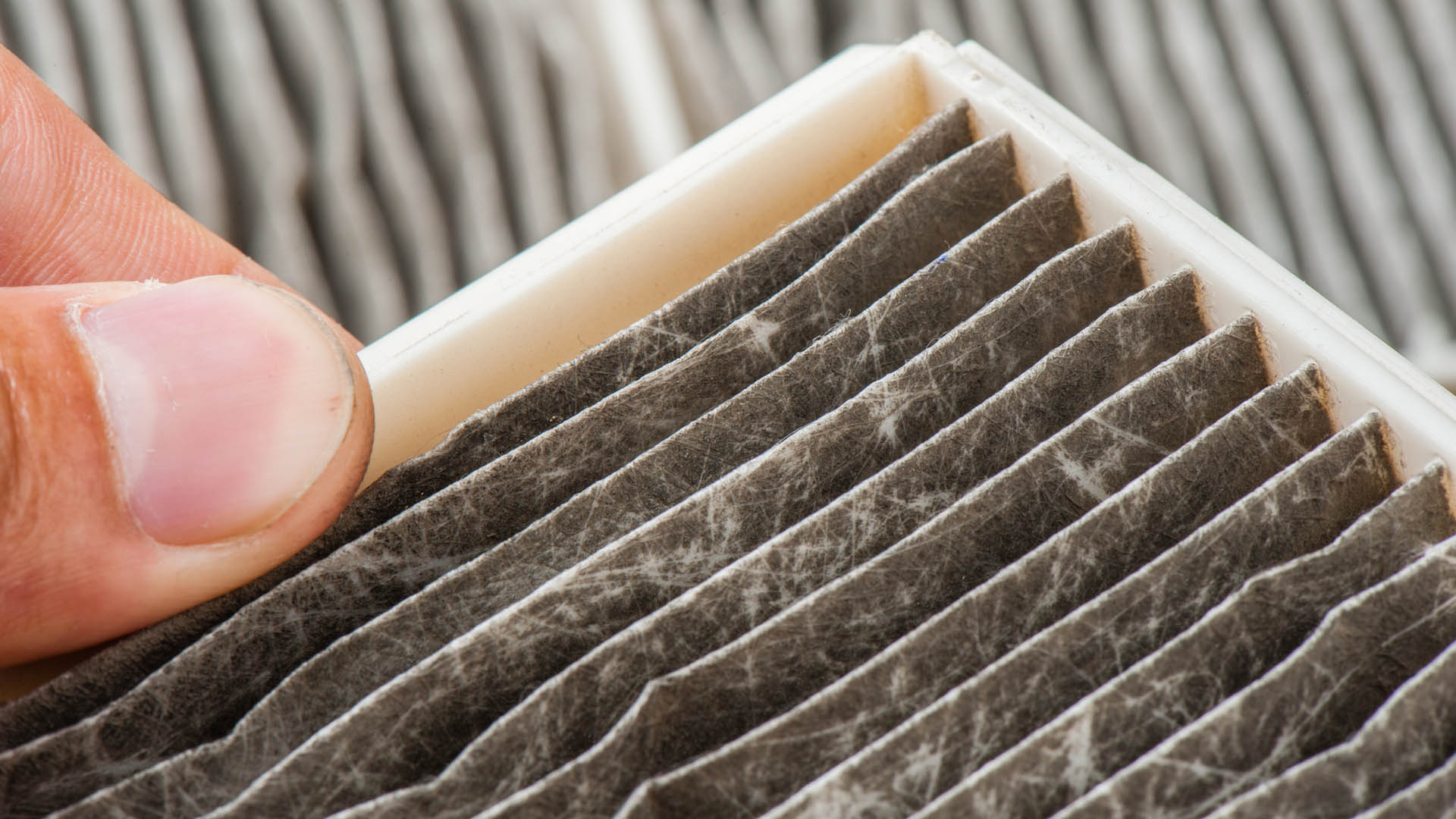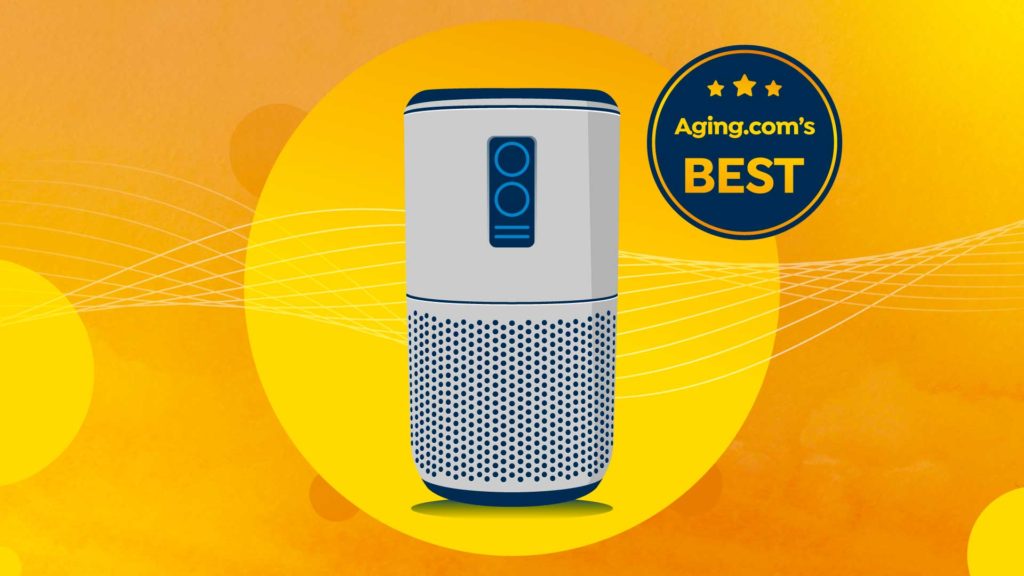
Getting the Right HVAC Filter

You may not give much thought to your HVAC filter on a day-to-day basis, and normally that’s a good thing. However it is important to understand how your HVAC system depends on filters and when to change them. Getting the right HVAC filter can make a big difference in the life of your system. Contrary to popular belief, a high-density filter may actually put more strain on your system and shorten its lifespan. For those who suffer from asthma and allergies, it can actually be better to use a lesser-grade HVAC filter paired with an air purifier.
Find What You Need
What Does an HVAC System Do?
HVAC systems pull air from the outside, filter it, and heat or cool it. The air is then released inside your home according to the temperature setting on your thermostat. There are four different types of HVAC systems:
Heating and Cooling Split System
The heating and cooling split system is the most common. There are two main units connected by copper tubing. The evaporator generates heat from a furnace, fan coil, or heat pump and is usually located inside. The condenser cools air from your air conditioner, heat pump, or fan coil and is located outside. They can be ducted or ductless. The ducted system uses ductwork to circulate the air. Ductless systems use small air handlers in certain rooms of your home to cool or heat that specific space.
Ductless Systems
A ductless system is sometimes referred to as a mini-split system. It’s a unit that is mounted on the wall and heats and cools the room it’s in. They’re attached to an outdoor compressor and are generally a good option to heat and cool new additions to your home, a garage, or a separate building on your property.
Hybrid Systems
Hybrid systems can run alternately on electricity or gas to heat and cool your home. You can decide which you want to use at any given time. This system uses traditional ductwork and thermostats, but allows you to switch between electric and gas to conserve energy and save money on your utility bill.
Packaged Heating and Air Systems
Packaged heating and air systems are located outside, are fairly large, and have a compressor, condenser unit, and an evaporator coil to heat and cool your home. They deliver the warm or cool air through air ducts.
What Do HVAC Filters Do?
All HVAC systems use a filter to remove particles like dust, pet dander, and pollen from the air. They help improve the air quality inside and protect your HVAC system from damage. There are different types of air filters with different capabilities, made with different materials and sold at different prices.
Flat-Panel Filters
Flat-panels are generally the most affordable type of filter. They’re easy to install, disposable, and are made of fibers. They aren’t made of the highest quality and are usually fairly cheap.
Pleated Filters
Pleated filters have pleats, are disposable, and are made of dense screens of polyester or cotton fibers. They are fairly effective at filtering particles from the air and are usually a little more expensive than flat-panel ones.
Fiberglass Air Filters
Fiberglass air filters are disposable, the least expensive, and the least effective at capturing the smaller contaminants out of the air. They are made of layers of fiberglass and metal grating.
HEPA Filters
HEPA stands for high efficiency particulate air. They will pull 99.97 percent of bacteria, dust, mold, pet dander, pollen, viruses, and other airborne irritants out of the air. However, they are very dense and hard to force air through.
When deciding which filter to use, it’s important to keep in mind that HVAC systems rely on good air flow to operate efficiently. If a filter is too thick, it will keep the air from flowing correctly, cause your unit to work harder than it needs to, and may force you to replace the whole system sooner than you expected. Since the unit is being overworked, it could also increase your utility bills because it is consuming more energy.
What is a MERV Rating?
MERV stands for minimum efficiency reporting value. It’s a ratings system with a scale that runs from 1 to 20. The higher the number, the better the level of filtration. Most homes have an HVAC system that can handle a MERV rating up to 13. It’s important to find out what your specific HVAC system can handle, though, so you can avoid using a filter that will cause it to overwork. In this case, the higher number doesn’t necessarily mean better. It’s generally best to get a filter with a MERV rating on the low to middle part of the scale – MERV 7-11 is a good range.
How Often Should I Change My HVAC Filter?
You should have your HVAC system serviced at least once a year by a trained and licensed HVAC technician to determine if your system is working correctly. They will check refrigerant levels and inspect for leaks, clean coils, tighten any electrical connections, and test the thermostat to make sure it’s working properly.
You can help maintain your unit by keeping the leaves and debris away from it and regularly changing the filter in your system. It’s recommended that you change them every 90 days, but it’s important to check them monthly to see how dirty they are and determine if you need to change them sooner. You may want to change them more often during allergy season or if you have pets that stay inside.
Instead of forcing yourself to remember when to change it, you can circle a date on the calendar, put a reminder on your smartphone or write the date you changed it on the filter itself.
Summary
The HVAC system is something we don’t always give a lot of thought to until it stops working and our house ends up really hot or cold. The best way to help keep your system in top-notch shape is to have it serviced every year by a professional and to change the filters regularly.


